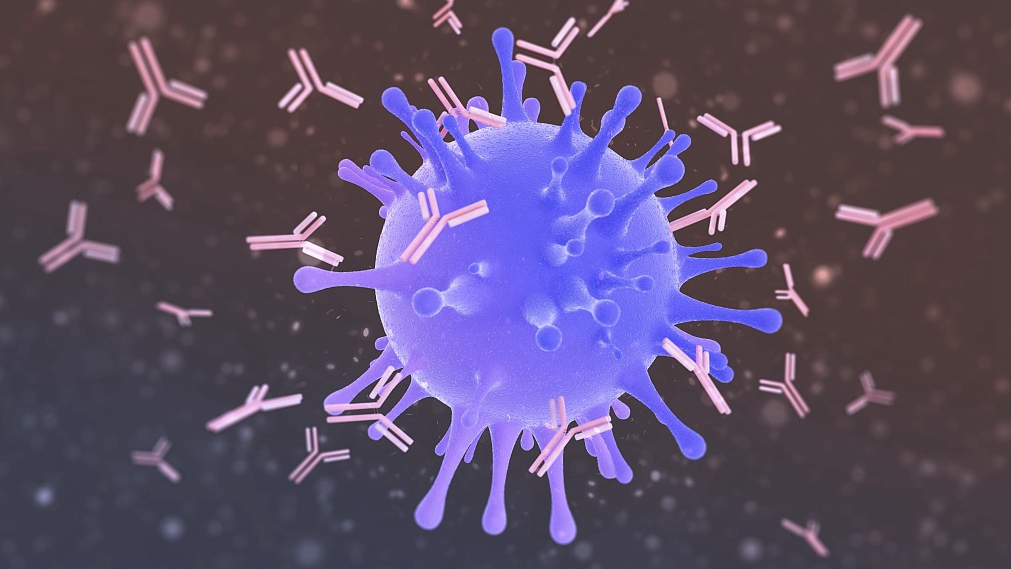
A new study led by scientists from China's Academy of Military Medical Sciences has discovered new clue in finding COVID-19 drugs.
According to the study, a neutralizing human antibody that binds to the N-terminal domain of the Spike (S) protein of novel coronavirus was discovered, which points to effective targets for drugs against COVID-19.
The research investigated not only just the protein's receptor binding domain (RBD) but also the entire S protein of the virus.
Scientists isolated and characterized monoclonal antibodies (mAbs) from 10 Chinese patients recovered from COVID-19. Three mAbs showed neutralizing activities against authentic novel coronavirus.
One of the mAbs, named 4A8, exhibits high neutralization potency against both authentic and pseudotyped novel coronavirus, but does not bind the RBD of the S protein. Although the 4A8 doesn't stop the virus from entering human cells, it was still able to neutralize the virus, said the study.
The study was published on Science on Monday.
(Cover image via VCG)








 User Center
User Center My Training Class
My Training Class Feedback
Feedback












Comments
Something to say?
Log in or Sign up for free